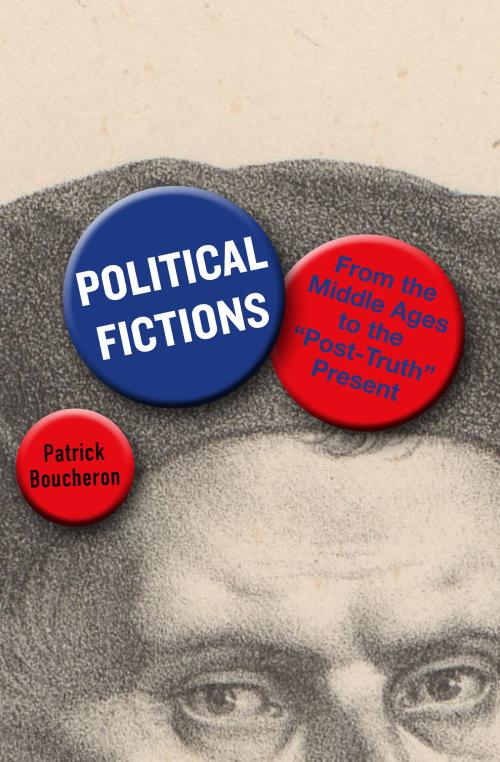PREFACE
What governs us? At a time when our attention is likely to be absorbed by the distressing sight of loud and violent leaders strutting on the political stage, at a time when our democratic defenses seem on the point of surrendering to the authoritarian subversion of grotesque but eminently dangerous political figures, the only question worth asking is: By what are we really governed? By what, not by whom. Because one of the most common tricks that tyrants use is to pretend that, through their antics, they stand with the people, a people they define in vague and imperious ways. The trap can then be snapped shut: If you are unable to dispel the gravitational pull exerted by this invading body that, as it gradually expands to fill the available space, slowly dissolves the very idea of the body politic, then you are preparing to obey.
No need, then, to hold forth at length on the psychology of tyrants: it most often repeats, in trite and dreary terms — even when systematically making use of surprise effects — the typological traits that classical authors defined long ago. Did they not say that dictators, despite their shouts and vehemence, are called “dictators” because they always allow their behavior to be dictated by those whom they pretend to subjugate? But if the dictator is dictated to, it’s certainly not by anything that is said to him explicitly — there is no convincing him of anything, he is deaf to all criticism, possibly even to all praise. No, what dictates to him is rather what political society says itself, against its own will, creating the necessary space for the set of stories, values, images, and partially imagined memories that we propose to call “political fictions” here.
Political fictions therefore refer to what already pervades in advance of any exercise of political power, even one that appears extraordinarily disruptive. They pervade in advance, that is the main point, and I’ll return to it. They do so all the more effectively the more they stay hidden and unnoticed. In this they are the opposite of myths, which function only if they are endlessly retold, and they also differ from ideologies, which demand to be constantly trumpeted. But they borrow the narrative form of myths and the ambition of ideologies to reflect an entire worldview. When we talk about political fictions here, what we will mean is the imaginary institution of societies, to use Cornelius Castoriadis’s term.
Since the Middle Ages, this imagined collective identity has expressed itself through a configuration of stories — one such is the Eucharistic metaphor and its monstrous inversion as the cannibalistic ruling power, to name one of the main plot narratives discussed in the pages that follow. But it can also be expressed in images, a form in which a fable’s movement is arrested — such is the case of the famous frontispiece of Thomas Hobbes’s Leviathan, which will stop us in our course at length also, quite literally since the image is understood here as an instance of immobilizing thought, of halting the flow of fiction, which in itself produces a visual event. In the case of both stories and images, it is a question of grasping the conditions for political embodiment, that is, the articulation between the fictive person of the king and his mortal body. Put in those terms, in the language of political theory, it can seem highly abstract. But it is patently clear to all of us today that the question of bodies politic, referring both to the leader who incarnates a public office and the people he represents, is one that is highly concrete and relevant today. Whence the need to think on the question historically, without bringing it back to a somewhat lazy analysis of the elements of language belonging to what we call today storytelling.
When we say “since the Middle Ages,” then, we intend it not only in the historical sense — “from the Middle Ages to the present day” — but very much in an archaeological sense. The challenge is to focus on the active part of our past, the part that is still alive in our contemporary world and all the more powerful for remaining quietly buried. To bring it to light is therefore to expose it to our critical view, so that we aren’t played by it. Such, I hope, is the liberating scope of this archaeology of modern government, a few of whose more salient aspects I propose to examine in this work. In trying to cast light, for instance, on our current anxiety over the scarily effective rhetoric of alternative facts, we note a strange familiarity with the odd, albeit fascinating, scholastic acceptance of the orthodoxy of the implausible. Probing this resemblance may allow us to stop wasting our time in outrage at the flimsy and absurd pronouncements uttered in a continuous stream by the leading figures of the post-truth era and grasp their paradoxical logic. We’ll understand at the same time that the contemporaneity of our archaisms is a kind of haunting.
This, briefly, is the kind of historian I will try to be in the coming pages: a medievalist who, believing that all history is contemporary, tries to throw light on its shadowed aspects with a controlled use of anachronism. One might also read this book as an essay on the texture of time, whose weft can be distended to show unexpected distances and discontinuities or, on the contrary, crumpled to show unnoticed overlaps and superimpositions of contemporary phenomena. We may better understand the nonhomogeneity of time since undergoing the unique experience of Covid-19, an experience that was both universal and discontinuous, since we lived that separation simultaneously, together and apart. Time folded in on itself, bringing certain distant things close and, conversely, making the familiar strange. Perhaps we are paying the political price today for not having truly thought through that moment when our historical condition was put to the test.

